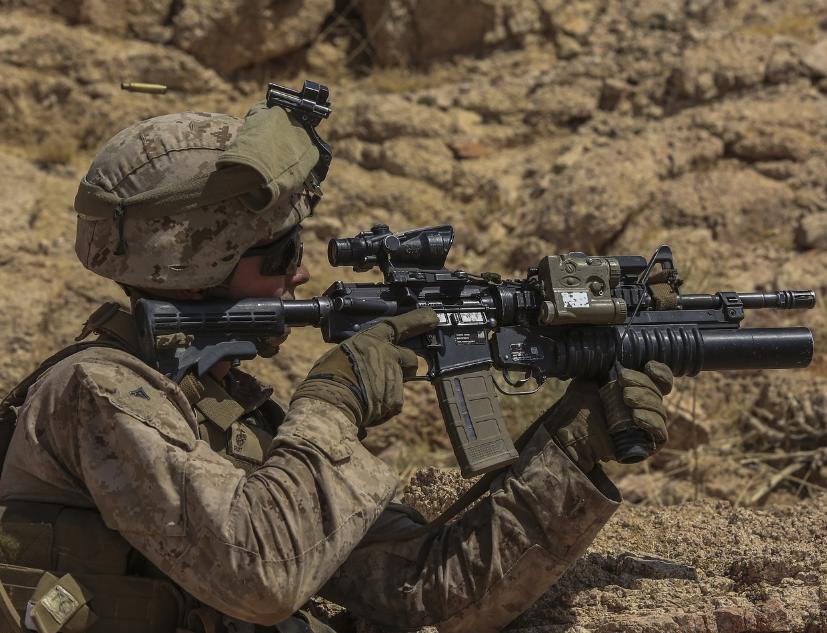by Chris Black

The rate of decline is accelerated, more soldiers are leaving the military than are joining and the pace is picking up each quarter.
Every single quarter the military reaches new all-time low recruitment numbers.
www.cfr.org/podcasts/us-military-recruiting-crisis-nora-bensahel
Notable Quotes
>Nobody wants to go back to a draft. And so, I don’t think we will be going back to a draft again unless some 9/11 or other massive event happens where the political dynamics could change overnight as a result.
>A third of the people who choose to serve in the military have a parent who served in the military. Up to 80 percent of people coming in have a family member broader than just a parent who serves in the military. So even though about 1 percent of the population serves in the U.S. military, it’s the same 1 percent generation on generation.
>I think that the patriotism that 9/11 evoked kept many people joining the military for many years. And as well, perhaps somewhat counterintuitively, people who sign up to join the military tend to want to fight. And so even though the risks were high, of course, recruitment ended up not being a problem for most of the wars in Iraq and Afghanistan.
>During government fiscal year 2022, which ran from October 1st of 2021, all the way through September 30, 2022, the numbers of people who were joining the military fell to some of their lowest numbers in recent memory. The Army itself fell short about 10,000 soldiers that it needed to make up its ranks. The other services were able to make their numbers, but just barely.
>This current fiscal year, which will end on September 30th of this year, the Army is on track to lose up to 20,000 additional people, to shrink by that much.
And the other services, all except the Marines, are projecting that they will come in under their military recruitment targets.
So, this is a very significant challenge for the military. It seems to be shrinking for reasons that are not strategic.
They’re not the result of a debate about whether we should have a smaller military or a bigger military.
It’s shrinking because there simply aren’t enough people who are both qualified and interested to join the military.
And that has defense observers really extremely concerned about what the future of the force is going to look like.
There was a survey that was done in December of 2015, which was one month after the attacks on the Paris nightclubs.
That was really the first international attack.
The group that claimed responsibility for it was ISIS. It was their first big international attack.
And so, when that was very much in the headlines, and everybody would’ve been aware of that having just happened, they did a survey of young people and they asked, “Do you think that the United States should go to war against the Islamic State?”
And about 60 percent of the young Americans who responded said yes. They then asked the same group of young people, “If the president went on television and announced that there was going to be this war against ISIS, but that they needed more people to fight it, would you volunteer?”
And 62 percent said no, they wouldn’t. That is profoundly unhealthy when the risks and burdens of military service are not evenly distributed throughout the population.
For all of the horrible ways in which the Vietnam draft was enacted, it did in a sense work in the way that it’s supposed to, although over too long a period of time, in that eventually the unpopularity of the war among the American public and the fact that they were engaged in that because their sons and daughters were being drafted, that gave them a huge stake in the conflict.
And ultimately, it was the lack of U.S. public support that led to the end of the war.
Even if it was imperfect and too many people died along the way, that mechanism no longer exists.
Let’s point out a few things.
- Extreme low-recruitment drives are the worst in US history. They cannot even make face to correct this god-awful mistake by forcing a shitty and life-culling medicines on the populace, now they force state-forced faggotry on soldiers.
- Because of recruitment drives are low. There is a hidden factor into most of this. No soldier wants to leave their gf or wife in the faith-crushing experience of becoming a cuckold because either wife or gf is extremely unfaithful.
- Because of contributing factors mentioned above, the one that are “retiring” suddenly is ending up on watch-lists left and right, there’s no surprise if their pensions are not going through from the sudden retirement/leaving. They are getting put on potential terrorist watchlists of being right-wing or possible right-wing-leaning.
- Profits?
Views: 424